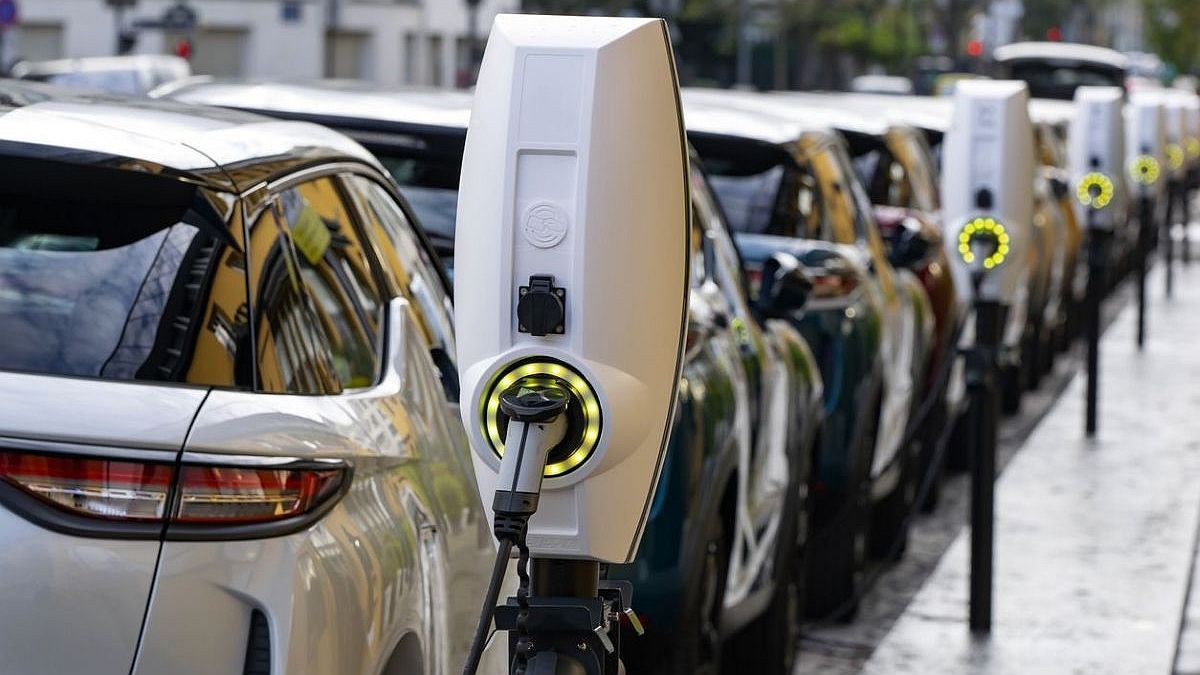Experts agree that one of the main problems that most affects the original projections is that It is becoming increasingly difficult to reduce electric prices. Thus, the universe of consumers is currently smaller than projected.
Although it may seem like a paradox, as production plans become more ambitious, the difficulties in lowering costs become greater. At this stage, Achieving greater scalability does not imply greater efficiency for manufacturers.
At the bottom of this contradiction is the problem for supply raw materials for your batteries and electric motors. The production of these inputs is still limited and the industry’s demand has grown.
Other problems are related to the deployment of charging infrastructure of electric vehicles, which seems to be going at a slower pace than car production. And furthermore, it still leaves a lot to be desired among users the time it takes to recharge the batteries to achieve maximum driving autonomy.
These and other difficulties basically affect the plans of traditional automotive companies, which are trying to mutate their production from combustion vehicles to 100% electric vehicles with established deadlines that now seem too short.
The bucket of cold water that Ola Kälenius threw on the deadlines for the dreamed-of total electrification of vehicles and sustainable mobility, gave a shake of reality to the entire sector. And so it was that they were visiblehe decisions of other automakers to hit the brakes and put plans devised in moments of frenzy on hold.
The president of Toyota, Akio Toyoda, also made statements on the subject along the same lines as his Mercedes counterpart. He said that the future of electric cars It won’t be as dominant. in the medium term as imagined. And he estimated that The maximum market share they can aspire to will be 30% for the year 2030.
Mercedes-Benz
As stated by its CEO, Ola Källenius, during the General Shareholders’ Meeting, the German automaker subordinates its plans to “what demand demands” and that is why it will continue manufacturing hybrid and combustion engine cars beyond the 2030 deadline.
This attention paid to the consumer message also translates into taking care of the results: in the first quarter of 2024 the company’s profit margin fell 9%, to its lowest level in two years. To reverse these numbers, Mercedes-Benz said it plans to diversify its offering and not rely solely on electric models.
Audi
The prestigious brand of the four circles has already made it known that it plans to delay plans to reach the goal of 100% electric production in 2033. Its CEO, Gernot Döllner, explained anyway that, “if the ban on the sale of vehicles with internal combustion engines in 2035 is delayed, we will have to adapt our strategy.”
For the moment, Audi maintains the idea of launching 10 new electric car models by 2026. But in parallel it has concentrated efforts on continuing the development of combustion engines and hybrid systems.
ford
The American Ford also decided to postpone its electrification goal in the face of a demand that is lower than expected. That is why it has already canceled the launch of an electric SUV with three rows of seats and also delayed the presentation of an electric pickup.
Thus, the annual investment in electrification projects was reduced from 40% to 30% of the annual budget. This also implies putting on hold the construction of the plant where the postponed vehicles were going to be manufactured.
Toyota
Toyota is the largest vehicle manufacturer in the world. And their decisions impact the rest of the industry. Its most impactful measure was to reduce its global production plans for electric cars by a third for the next two years. This means manufacturing 1 million electric vehicles by 2026. The figure represents 500,000 fewer cars than originally projected.
bentley
The exclusive British automaker Bentley announced in March of this year that it will delay its transition to 100% electric vehicle production for three years, moving from the original goal of 2030 to a new deadline in 2033. It also announced that the arrival of its first fully electric vehicle model electric, initially scheduled for 2025, has also been postponed until 2026.
Volvo
The Swedish manufacturer Volvo, currently in the hands of the Chinese company Geely, formally announced that in 2030 its sales of models with mild hybrid technology will be equivalent to 10% of its production, which will continue to depend primarily on combustion engines.
The decision also includes modifying the carbon emissions reduction forecasts, which were going to be 75% in 2023. However, it placed this reduction in a range of 65% to 75%.
Jim Rowan, CEO of Volvo, also wanted to ratify the long-term project, although in his same statements he relativized the urgency to fulfill it: “We are firmly convinced that our future is electric. However, it is clear that the transition to electrification will not be linear, and customers and markets are moving at different speeds of adoption.”
cadillac
Another luxury brand, Cadillac, had announced in 2021 that it had plans to become a 100% electric brand in 2030, in line with the new environmental requirements of the European Union.
But now its vice president, John Roth, reported that the final word has been left to what users demand and thus opened the possibility of continuing to market combustion cars beyond the planned period.
Stellantis
The Stellantis group integrates the Italian brands Abarth, Alfa Romeo, Fiat, Lancia, Maserati; the Americans Jeep, Chrysler, Dodge and RAM, the French Peugeot, Citroën, DS, as well as the Germans Opel and Vauxhall.
It recently completed the presentation in Europe of Leapmotor, its electric car brand, in partnership with a Chinese company. But from the beginning he clarified that the objective of reaching 100% electrified production in the group is not a priority.
“Our goal is to put ourselves in a position where, on the one hand, we can show the market that we know where things are moving and that we are very committed to the electric vehicle market, but, on the other hand, we have the flexibility to go and grow where consumer demand is,” said Natalie Knight, the group’s chief financial officer.
Source: Ambito
I am a 24-year-old writer and journalist who has been working in the news industry for the past two years. I write primarily about market news, so if you’re looking for insights into what’s going on in the stock market or economic indicators, you’ve come to the right place. I also dabble in writing articles on lifestyle trends and pop culture news.




